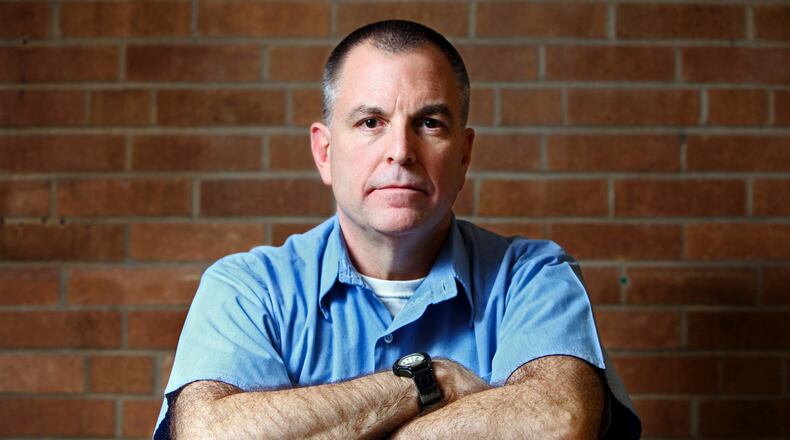Coronavirus: Complete Coverage
Included on the list is Thomas Noe, a central figure in the 2005 scandal that erupted at the Ohio Bureau of Workers’ Compensation that led to more than 18 people being convicted of felonies and or misdemeanors.
A double-barreled investigation into ethics and investments in former Gov. Bob Taft’s administration and the BWC led to the sitting governor pleading no contest to a misdemeanor charge in 2005 and Noe, a rare coin dealer, being convicted on 29 felony counts and sentenced to 18 years in prison in 2006.
DeWine is working through the Corrections Institutions Inspection Committee, county prosecutors’ offices, local courts and the Ohio Parole Board to facilitate the releases.
DETAILS: Who will get ventilators and ICU beds? Ohio hospitals urged to plan
The steps remain short of what criminal justice and civil rights groups have been advocating.
On April 2, lawyers representing inmates filed an emergency application with DeWine and the Ohio Adult Parole Authority for reprieves during the COVID19 pandemic. The Ohio Constitution gives the governor the power to grant reprieve for prison sentences.
“Permitting prison populations to persist at current numbers and density is a brewing human rights disaster,” the application says.
Social distancing is difficult or impossible in many of the state prisons, where hundreds of inmates are housed in open dormitory rooms with bunk beds placed less than three feet apart.
Coronavirus infections have been confirmed in four prisons, as well as a state center in Toledo for Ohioans with developmental disabilities, according to the Ohio Civil Service Employees Association, the union that represents the bulk of state workers.
Coronavirus: Greene County deputy tests positive
The OCSEA filed a statewide grievance, arguing that a provision in the 2018-2021 collective bargaining agreement mandates an $8 per hour premium for hazard pay in emergencies. OCSEA President Chris Mabe said the state disagrees with the union’s interpretation of the contract.
State tax revenues are already declining, according to preliminary numbers released by the Office of Management and Budget. Sales tax revenues fell 8.3% and income tax revenues fell 5.1% below budget estimates for March.
Recently, DeWine imposed a hiring freeze, blocked state travel and restricted purchases to brace for the budget crisis.
“Trust me, that is on our minds,” Mabe said. “Those tax breaks we’ve been giving for all those years are coming home to roost.”
Coronavirus: Ohio below the curve, but has ‘a couple hard weeks ahead’, Acton says
The Ohio Department of Health on Tuesday reported 4,782 confirmed cases of coronavirus infections, including 1,354 hospitalizations and 167 deaths. The cases are in 81 of Ohio’s 88 counties. Roughly 50,000 people have been tested but Ohio still faces shortages of testing supplies, ODH Director Dr. Amy Acton said.
“This is a pandemic of a scale that has not been seen in our life times,” Acton said. Ohio took early, aggressive actions to slow the spread of the virus so the hospital system isn’t overloaded with critically ill patients.
Acton said the latest models that forecast caseloads indicate steps taken so far have effectively flattened the pandemic curve so that Ohio hospitals won’t be overwhelmed.
First plasma donation made by recovered coronavirus patient in Dayton region
“But it’s very important to remember that if we let up, within two weeks we will easily bounce back above that curve. Vitally, vitally important, Ohio. You have done this. You’re winning the war to protect our scarce resources and keeping our hospitals so they’re able to deal with this,” Acton said.
The DeWine administration made two other announcements on Tuesday:
• Ohioans getting carry out meals from restaurants with liquor permits will be allowed to get up to two carry out drinks as well.
• Ohioans enrolled in Supplemental Nutrition Assistance Program, also known as food stamps, will be given an additional payment for March if they didn’t receive the maximum monthly allotment for their household size.
